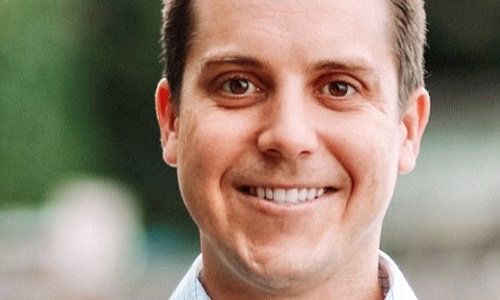Tezos is moving on from a messy public controversy over control, with the cryptocurrency project singled out by a major U.S. crypto custodian and a key voting process underway. finews.com checks in with foundation president Ryan Jesperson.
The foundation overseeing Tezos recently hired a well-known lawyer as general counsel, appointed a finance chief, and last month updated its charter to improve its oversight. The project seeks to improve on the Bitcoin and Ethereum networks by assigning security of its network to token-holders – a so-called proof-of-stake process.
Tezos is set up as a self-amending system: token-holders vote on improvements to its network protocol. Foundation head Ryan Jesperson spoke to finews.com recently about its troubled past, its goals this year, and diversifying its cryptocurrency assets.
Ryan Jesperson, what is the Tezos Foundation seeking to achieve for itself this year?
We’re continuing to improve on processes, procedures, and internal governance. We’re still in fairly early stages in this blockchain journey, so we’re making sure we’re getting the foundation right. We think Tezos will be viewed as an example of how these things can and should work in terms of governance and role of crypto foundations, and empowering its community to further the network.
The foundation is still party to class action litigation in the U.S. Where does that stand?
We don’t comment on things of a legal nature. I’m confident and optimistic about the future of the Tezos protocol. I think you’re increasingly seeing people build solutions on top of and offer custodian solutions for Tezos. It shows the market generally is optimistic about the future of Tezos as well.
What types of things are being built on top of Tezos?
Elevated Returns (a U.S. firm which digitizes assets) plans to tokenize over $1 billion in real estate on the Tezos blockchain. We hear of different people wanting to tokenize various financial instruments like real estate, derivatives, funds, and also projects around microinsurance and lending. People want to build on a platform they know is stable.
Coinbase, a crypto custodian, also recently disclosed it will pay rewards to incentivize token-holders towards proof-of-stake.
In Tezos, every token holder can help to secure the network and receive rewards from the protocol for doing so. If they don’t do this on their own, they can delegate this right to somebody else who does it for them and then shares a portion of the rewards back to the token-holder.
«People see a better governance solution than Ethereum»
Coinbase stood out to me because they will offer this service for institutions and they also made it a point to announce that they will add voting features. If we want to see large-scale adoption of blockchain networks by big businesses, institutions, and maybe even governments, they’ve got to have confidence in how these things evolve over time and how they are managed from a governance standpoint.
How is Tezos’s process going?
A voting process is currently being conducted for the first time. Currently, 82 percent of the token-holders on the network have voted in this process. I think people are seeing this governance solution as providing a better way to decide the future of a protocol, versus Ethereum, for example.
What is the foundation’s role in this?
The foundation has a mandate to use its funds to help further the Tezos network. Foundations in general should be accountable, they should use similar processes and controls that other institutions which handle significant assets use, and that’s absolutely where we’re going.
«Tezos funds are secured and used accountably and appropriately»
Those things take time. We are the only large-scale blockchain foundation to appoint a «big four» as its external auditor. The Tezos community needs to know that the foundation has the funds secured and they are being used in an accountable and appropriate way.
Speaking of funds, how is the foundation’s diversification out of bitcoin and ether from the 2017 initial coin offering going?
It’s going well. It’s not just something that happens overnight, but the foundation has plenty of funds to meet its long-term needs. I’d say over the next three to four years we’ll have diversified those assets.
Ryan Jesperson is head of the Tezos Foundation, a Swiss vehicle which governs the cryptocurrency project of the same name. The 38-year-old American worked in real estate and healthcare management before joining the fintech industry in 2017. Jesperson joined Tezos last year, after a major dispute between his predecessor and the Tezos founders was set aside. Jesperson graduated from Brigham Young with a degree in business and from Duke University with an MBA.




































